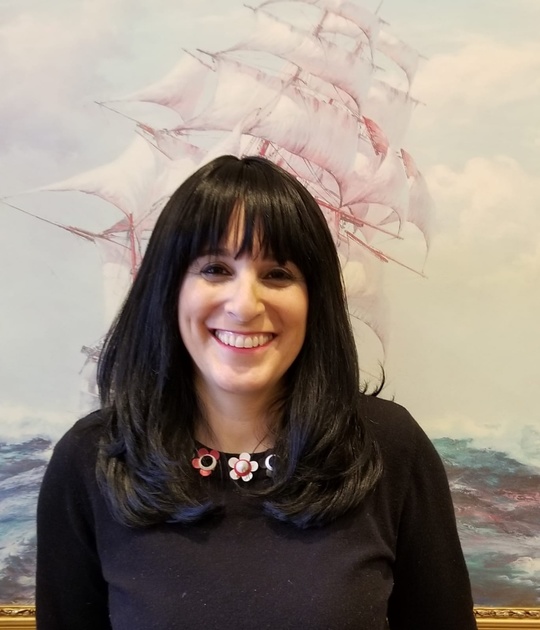
I write this column to teachers and rebbes, principals and menahalim, grandparents, aunts, uncles, neighbors and family friends, and especially for the rav and rebbetzin.
This column is about the borderline mother and to give her child a voice so we may hear and do.
I will not talk of the borderline mother who is so dysfunctional that her dress disorderly, always in conflict with some one or another, alienating her family, her friends, often divorced and unemployed because she cannot sustain a relationship enough to remain in a marriage, employed in a job. No, I will not talk of her because her children, although they suffer, are often taken under the wing of the community who recognizes their obvious distress.
Instead, I will talk of the mother with borderline personality disorder (or one with various borderline tendencies on a spectrum that may not reach a full diagnosis) that is a remarkable person. She is charming and intelligent. She is involved in community affairs, often working in the helping professions of teaching or therapy. She holds a job, runs a beautiful home, and whose children often look immaculately groomed and dressed. She talks earnestly to others about the importance of a being a good mother. She can be counted on for fun, for responsible jobs, to discuss issues of concern to the community and advice on how to best serve our children.
So, what does it mean to be borderline, you ask?
Someone who has borderline personality disorder lacks the capacity to regulate her emotions. She is a person completely stripped of her skin, her entire being is a huge open wound so that every human interaction, no matter how benign, feels as painful as touch feels to a burn victim whose entire surface of the skin has trapped in a fire and has not yet begun to heal.
A person with borderline personality disorder feels unloved, and although her entire focus is to acquire love from her husband, friends, or children; precisely the opposite occurs as she drives them away with her emotional dysregulation. This bottomless need for love is usually a result of impaired attachment with her own mother who did not have the capacity to love her, to express love to her, or childhood trauma.
The borderline mother seeks to control her environment, to acquire the obedience of her children and husband, because she has no other tools by which to make them need her, and thus to love her.
But she is often capable of masking all this so that she appears to be the model model of motherhood, all charity and charm.
She is a person to be pitied, for she is truly a pitiful creature. And if she reaches out for help, we must try to help her with every ounce of our strength.
But the borderline mother rarely recognizes her flaws. And we must reserve and direct our pity instead to her child that must be saved.
For the borderline mother is a frightening thing.
Her rages are terrifying.
She threatens to hurt if her demands are not met. And often she does hurt. With her hands. With objects. With words. She uses awful words, hurtful words, manipulative words, guilt-inducing words.
Children of borderline parents cannot find the words to explain their terror, their distress, their dread. They wake up in fear, and return home to fear. They feel unsafe, unprotected, anxious and depressed. School may be a haven, but they dare not speak.
The borderline mother has perfected guilt to an art. She manipulates her children to take on the burden of feeling a guilt that is almost as paralyzing as the terror.
Sometimes, the distress of some siblings manifest itself in bullying, adding another layer of torment to both bully and bullied. Especially as the bullied child feels helpless to stop it; feels she has no recourse from her parents or other adults.
Sometimes the borderline mother surprises the child with the most amazing evening out just them two alone, and says the words the child thirsts to hear, “I love you. You are wonderful.” and the child thinks that really she is bad and if only she can try harder to be good, her mother will remain this good mother.
Imagine a child saying, “My mother gets upset when I don’t want to finish my schnitzel.” The teacher or neighbor or grandparent nods sympathetically. “Your mother is a wonderful mother. She does work hard to make supper every night. You should appreciate her and eat what she gives you.” The child is urged, “Make an effort. She cares so much about you!”
The child despairs. Her words are lost in an ocean of unresponsiveness, of obliviousness.
Where is the father, you ask?
He often leaves the house early and comes home late. If the child dares to complain, he says, “Listen to your mother. She is right. She is doing the best she can. You should stop complaining /misbehaving/ giving her grief.”
And the borderline mother is clever and sly enough that no matter how much she screams or hits or criticizes her children, when her husband is home, she never crosses the line from out-of-control to the pure crazy her children know.
He is afraid too.
He hates conflict.
He pretends he doesn’t see; he pretends he doesn’t know.
He thinks he is preserving the peace.
Imagine the helpless rage and fears of a child who understands that her mother is so powerful that even her own father is afraid. If her own father cannot protect her, how can she trust any adult? How can she confide in a teacher, her grandparent, the rebbetzin of her shul?
She becomes confused, and thinks maybe she is truly as bad as her mother says she is. Maybe she deserves all the punishment she endures.
Life is a confusing blur of illusion, the blend of her mother’s distortions and her father’s ghostly presence.
Children of borderline mothers often grow up to perpetuate their mother’s legacy—unable to find a sense of self that enable them to form relationships, hold down jobs, or parent their own children. They are bottomless pits of insecurities, fears, and skewed views and attitudes of how the world works.
This column speaks to you, the grandparent, the aunt, the teacher, the principal, the neighbor, the rav, the rebbetzin who has some influence over the borderline parent.
Often, if someone speaks up, validating the child’s difficult existence, giving the child tools to cope, to change the dynamics of the home; through therapy, through a supportive school or extended family, the family can heal.
Even the borderline mother.
NOTE: THIS ARTICLE WAS ORIGINALLY PUBLISHED BY BINAH MAGAZINE
Look me up on LINKEDIN https://www.linkedin.com/in/mindy-blumenfeld-a8067583
Check out my book THERAPY SHMERAPY, available in bookstores and through Amazon
Browse through my previously published articles on my former blog Therapy Thinks and Thoughts at frumtherapist.com/profile/MindyBlumenfeldLCSW
Read current articles in my bi-weekly column THERAPY: A SNEAK PEEK INSIDE in Binah Magazine, available on newsstands every Monday.
 Previous
Previous

